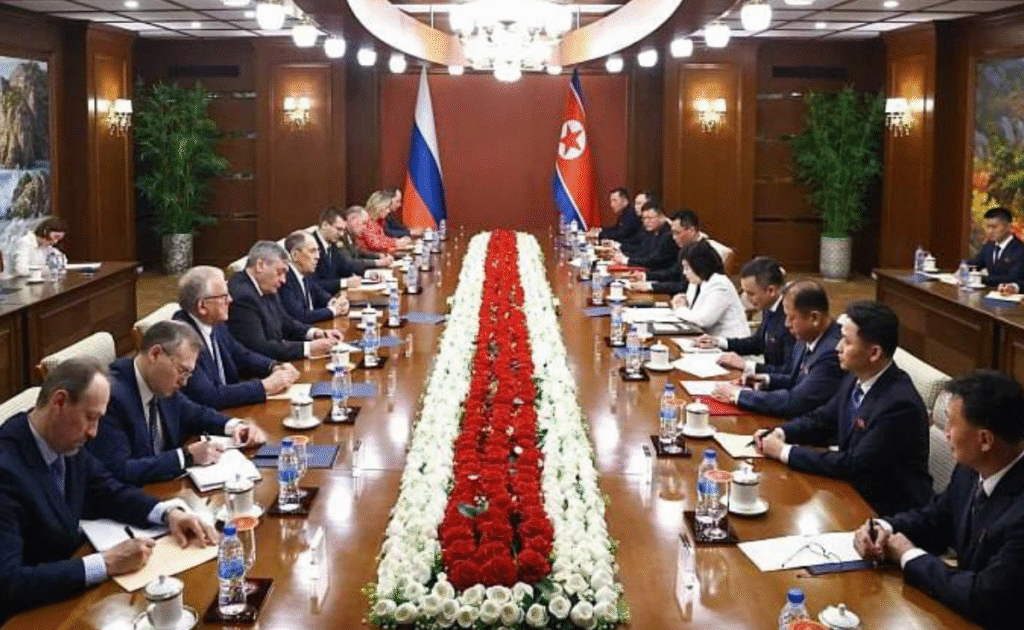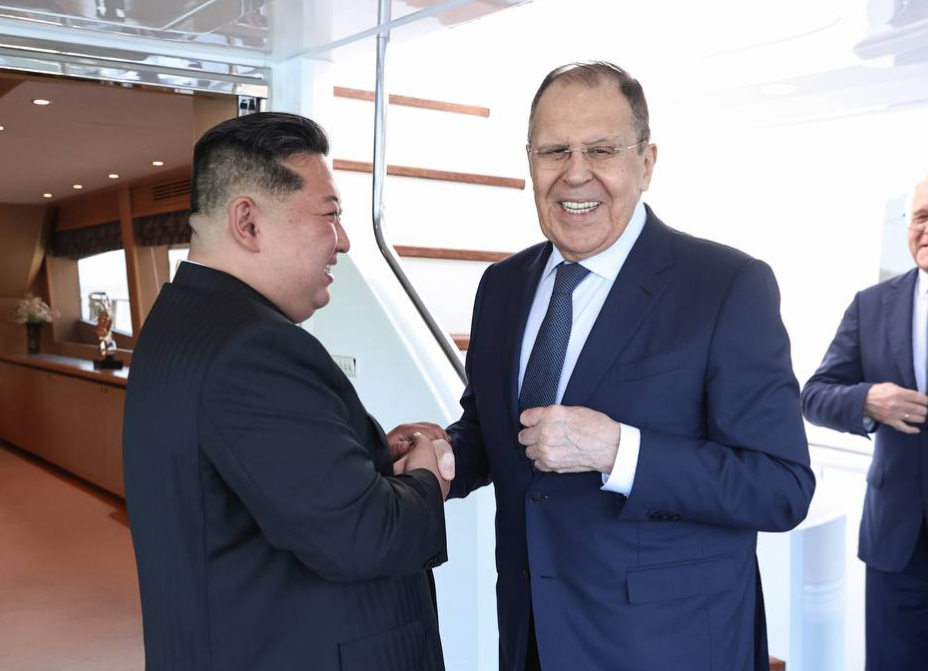Lavrov meets Kim Jong Un in Wonsan to reinforce the Russia–North Korea strategic partnership. Their discussions focused on implementing the Treaty on Comprehensive Strategic Partnership, expanding economic cooperation, and enhancing cultural and military ties. Putin reaffirmed his commitment to previous agreements and looks forward to continued direct engagement with Kim Jong Un.
Russian Foreign Minister Lavrov Meets Kim Jong Un in Wonsan
In a crucial diplomatic encounter that reflects the strengthening of ties between Moscow and Pyongyang, Russian Foreign Minister Sergey Lavrov met with the Chairman of the State Affairs Commission of the Democratic People’s Republic of Korea, Kim Jong Un, in Wonsan on July 12, 2025. This high-level meeting comes at a time when global geopolitical alignments are rapidly evolving and both nations are seeking stronger strategic partnerships.
Lavrov meets Kim Jong Un with a message of continuity, strategic vision, and reaffirmation of existing agreements. Welcoming the North Korean leader, Lavrov expressed his gratitude for the opportunity to hold direct talks. He noted that such in-person discussions have always encouraged the forward momentum of Russia–North Korea relations, especially in the wake of the Treaty on Comprehensive Strategic Partnership signed earlier between President Vladimir Putin and Chairman Kim Jong Un.
Lavrov meets Kim Jong Un not just as a formal diplomatic act, but as part of a deepening bond, reflective of mutual strategic interests. The treaty signed between Putin and Kim serves as the guiding framework for broad-ranging cooperation across defense, trade, science, and culture.

During the opening remarks, Lavrov emphasized how much Russia valued Kim Jong Un’s gesture of visiting the Russian Embassy on May 9, during Victory Day commemorations. Kim’s heartfelt speech at the embassy was viewed in Moscow as a symbol of solidarity and respect. Lavrov highlighted how, around the same time, President Putin met with commanders of the Korean People’s Army who had fought alongside Russian forces in the historic liberation of the Kursk Region. This shared military history continues to serve as a foundation of trust between the two nations.
Lavrov meets Kim Jong Un with a message from President Putin himself. The Russian president, according to Lavrov, extended warm greetings to Kim Jong Un and reaffirmed his full commitment to all previous agreements. Putin expressed eagerness to continue direct communication with the North Korean leader, hinting at a possible upcoming summit or another face-to-face interaction between the two powerful leaders.
In addition to the symbolic and strategic messages exchanged during the Wonsan meeting, Lavrov’s visit had a significant working agenda as well. Lavrov held an extended dialogue with North Korea’s Foreign Minister, Choe Son-hui. Their talks, which lasted over three hours, were described as focused, substantive, and productive. The discussions covered the full scope of bilateral relations—something both sides have been keen to expand in recent years.
One of the major focal points was the preparation for the upcoming session of the Intergovernmental Commission on Trade, Economic, Scientific, and Technical Cooperation. This meeting, scheduled for late 2025, is expected to unlock new opportunities in areas such as energy, transportation, mineral development, and agricultural technology. Lavrov meets Kim Jong Un with a strong mandate to explore ways to enhance this cooperation in practical terms.
Furthermore, the Lavrov–Choe meeting also touched on enhancing cultural and humanitarian exchanges. Both Russia and North Korea have expressed growing interest in promoting people-to-people connections. These efforts may include academic exchanges, joint cultural festivals, translation programs, and youth engagement initiatives. Lavrov meets Kim Jong Un in a context where soft diplomacy is becoming increasingly relevant, especially as both countries face external pressures from Western powers.
The choice of Wonsan, a port city and military hub, is itself symbolic. It reflects the strategic nature of the discussions and sends a message to the international community that Russia and North Korea are aligning their priorities not just diplomatically, but possibly in defense and military coordination as well. Though specifics of military agreements were not disclosed, the undertones of solidarity and security cooperation were palpable throughout the meeting.
In summary, the July 12, 2025 meeting where Lavrov meets Kim Jong Un has once again demonstrated the strengthening of the Russia–North Korea axis. With continued backing from President Putin and proactive engagement from both foreign ministries, this partnership appears poised to expand further. Whether through economic initiatives, cultural collaboration, or historical military alliances, the message is clear: Moscow and Pyongyang are committed to building a robust, multipolar world order—together.
As Lavrov meets Kim Jong Un in Wonsan, the world watches closely. What was once a limited partnership defined by geography and history is now evolving into a multifaceted strategic alliance, with implications not only for Asia but for the global geopolitical balance.

